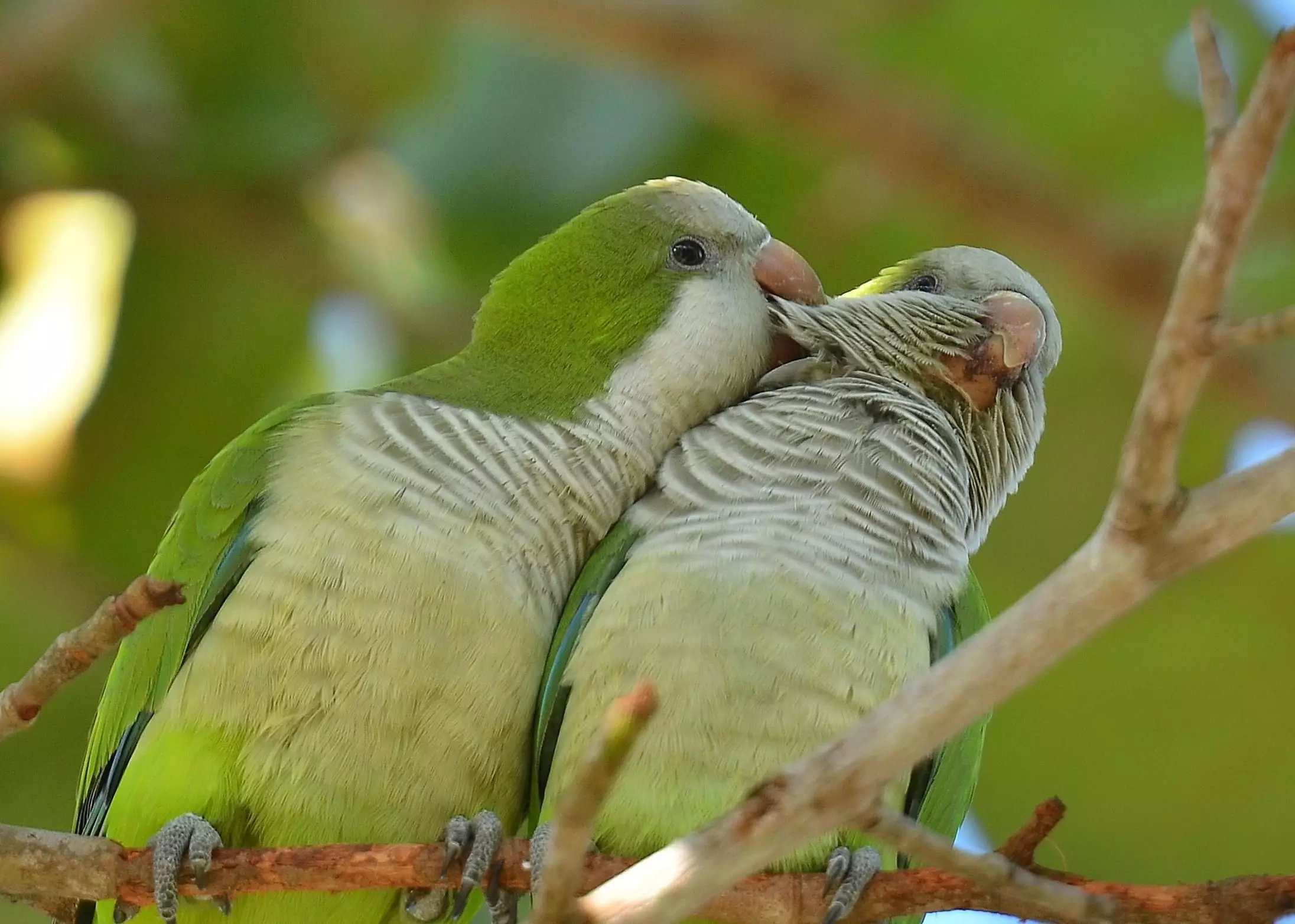Quaker parrots, also known as monk parakeets, captivate many with their lively personalities and striking ability to mimic human speech. These adorable avians are an excellent selection for bird aficionados seeking the joy of a larger parrot in a more manageable size. Their adaptability to human environments and sociable nature render them appealing to novice bird owners. However, it’s critical to note that the legality of owning a Quaker parrot varies across various regions of the U.S. Before making a decision to bring one into your home, performing due diligence on local regulations is necessary.
The Quaker parrot, scientifically referred to as Myiopsitta monachus, typically reaches an adult size of about 12 inches from beak to tail and weighs between 4 and 5 ounces. In captivity, they can live for approximately 20 to 30 years, with some individuals reaching even greater ages. Their native habitat includes parts of South America, particularly central Bolivia, southern Brazil, and parts of central Argentina. Quaker parrots thrive in woodlands and are remarkable for their unique nesting behavior—unlike other parrot species, they build complex, multi-room nests, often in communal settings with their flock.
One defining characteristic of Quaker parrots is their social nature. These birds are more than just pets; they are engaging companions that enjoy forming strong bonds with their human partners. Much like larger parrot species, Quakers crave attention and social interaction. They exhibit a playful demeanor and can be quite affectionate, often delighting their owners with greetings that include excited squeaks and requests for attention. However, a strong owner-bird relationship is pivotal; without regular interaction and training, a Quaker may resort to undesirable behaviors.
Quaker parrots are renowned for their vocal abilities, often imitating words and phrases with stunning accuracy. Their chatter can be endearing but varies considerably among individual birds. Some owners may find their Quakers to be fairly quiet, while others notice a more boisterous demeanor, especially in multi-bird households. It is essential to understand that while they are less likely to emit screeches compared to other parrots, they will occasionally call out, which could be a concern for potential neighbors in close living situations.
Visually, Quaker parrots exhibit vibrant green plumage with a distinct gray breast, cheeks, and throat, giving them a unique and instantly recognizable appearance. Their beautiful blue flight feathers and lighter green tail undersides further enhance their aesthetics. Interestingly, this coloration is reminiscent of the attire worn by 18th-century Quakers, which inspired the name. Over recent years, captive breeding has led to the emergence of several color mutations, including blue hybrids and other varied forms, appealing to those looking for something beyond the standard green.
Providing a suitable environment for a Quaker parrot is vital for its well-being. Their enclosure should ideally measure at least 18 inches square to accommodate their need for movement and play. Given their proclivity for chewing and intelligence, the cage must be made of durable materials and secured to prevent escapes. Moreover, placing the cage away from direct sunlight and drafts is crucial, as Quakers can be sensitive to temperature fluctuations.
Nutritionally, Quaker parrots require a carefully balanced diet to thrive. Their primary diet should revolve around high-quality, commercially formulated pellets, supplemented with fresh fruits, vegetables—including leafy greens— and a modest amount of nuts. These birds are prone to obesity and related health issues, so it’s essential to manage treats wisely. Freshwater should always be available, while toxic foods like avocado and chocolate must be strictly avoided.
Quaker parrots are highly active creatures requiring ample opportunities for physical and mental stimulation. Providing engaging toys, a spacious play gym, and at least two hours of supervised time outside their cage each day is paramount. Quakers enjoy engaging in activities related to nest-building and can be observed collecting and weaving items into their environment. Monitoring their curious nature during out-of-cage time ensures their safety and the protection of your belongings.
It is essential to recognize that owning a Quaker parrot means entering into a long-term commitment; these birds can bond deeply with their human companions and may display territorial behavior. The potential owner should be prepared for the time and effort needed to train and socialize their bird properly, providing a loving and safe environment.
Quaker parrots offer an array of delightful qualities, making them an appealing choice for bird lovers. Their social nature, talking abilities, and affectionate demeanor are balanced by the responsibility they require in terms of care and engagement. If you’re considering inviting a Quaker parrot into your life, be prepared for joyful companionship wrapped in a delightful package, while also being mindful of the commitment it entails.


Leave a Reply